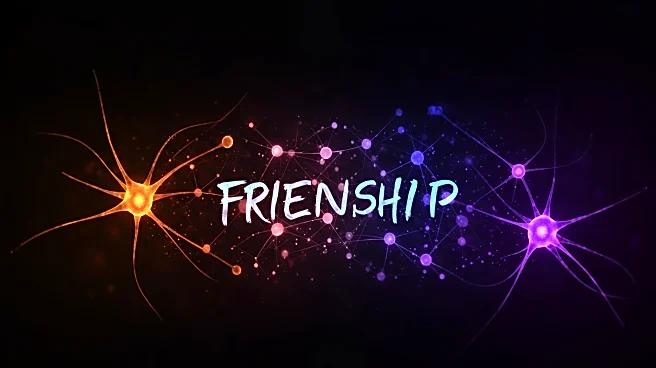What's Happening?
A study conducted by Carolyn Parkinson at the University of California, Los Angeles, has revealed that strangers are more likely to become friends if their brains respond similarly to movie clips. This research involved brain scans of 41 students before they began a graduate program, where they watched a series of 14 movie clips. The study analyzed neural activity across 214 brain regions and found that participants who became friends had more similar responses in the left orbitofrontal cortex, a region involved in processing subjective value. The findings suggest that friendships may form based on shared thought processes rather than just proximity.
Why It's Important?
The study highlights the significance of neural similarities in forming social bonds, suggesting that people may naturally gravitate towards those with similar cognitive processes. This insight could impact how social networks are understood and developed, potentially influencing fields such as psychology, sociology, and even marketing. Understanding the neural basis of friendship formation could lead to new approaches in fostering social connections and improving mental health by encouraging environments that promote shared experiences.
What's Next?
Further research may explore how these findings can be applied to enhance social interactions in various settings, such as educational institutions or workplaces. There could be implications for designing programs that facilitate bonding through shared experiences, potentially improving teamwork and collaboration. Additionally, the study may prompt investigations into how neural similarities can be leveraged in therapeutic settings to support individuals with social anxiety or other related conditions.
Beyond the Headlines
The study raises ethical considerations regarding privacy and the use of brain scans in predicting social behaviors. As technology advances, there may be concerns about how such data is collected and used, particularly in contexts where individuals may not consent to such analyses. The findings also suggest a deeper understanding of human relationships, challenging the notion that friendships are solely based on shared interests or backgrounds.











